We Are Here: The African American Heritage Trail
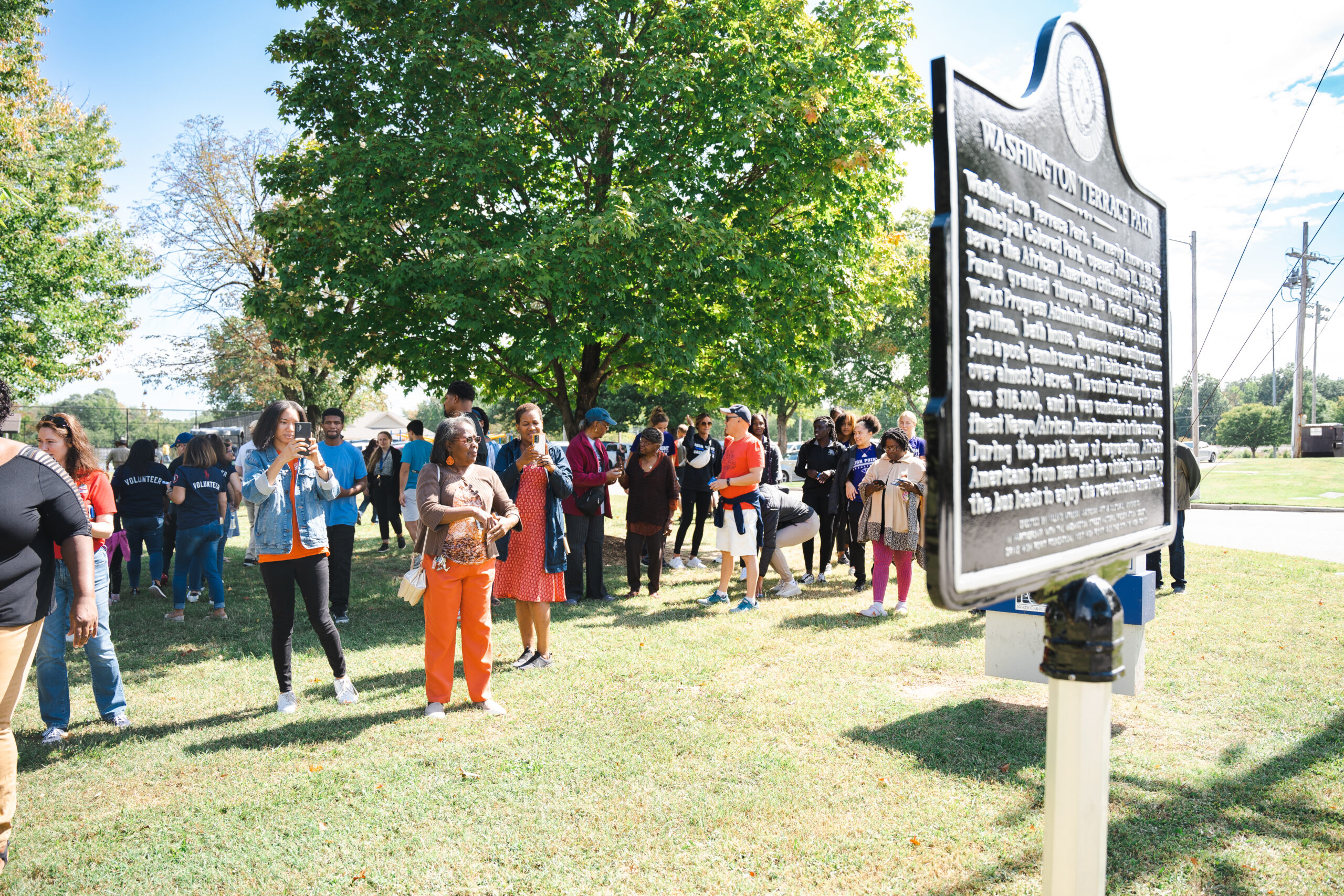
To start our celebration of Black History Month, we are honoring the rich tapestry of High Point’s Black community history. High Point's history is intertwined with the stories of African American individuals and organizations that have left an unforgettable mark on the city. Dating back to the 1750s, the African American community settled in High Point during the era of slavery, a time when freedom was a distant hope. The First Baptist Church, constructed in 1865 on Washington Drive, became a pivotal institution in the Black community's growth. William Penn High School (now Penn-Griffin School of the Arts), the African American high school in North Carolina from 1892 through 1968, served many students in High Point – including the world-famous John Coltrane.
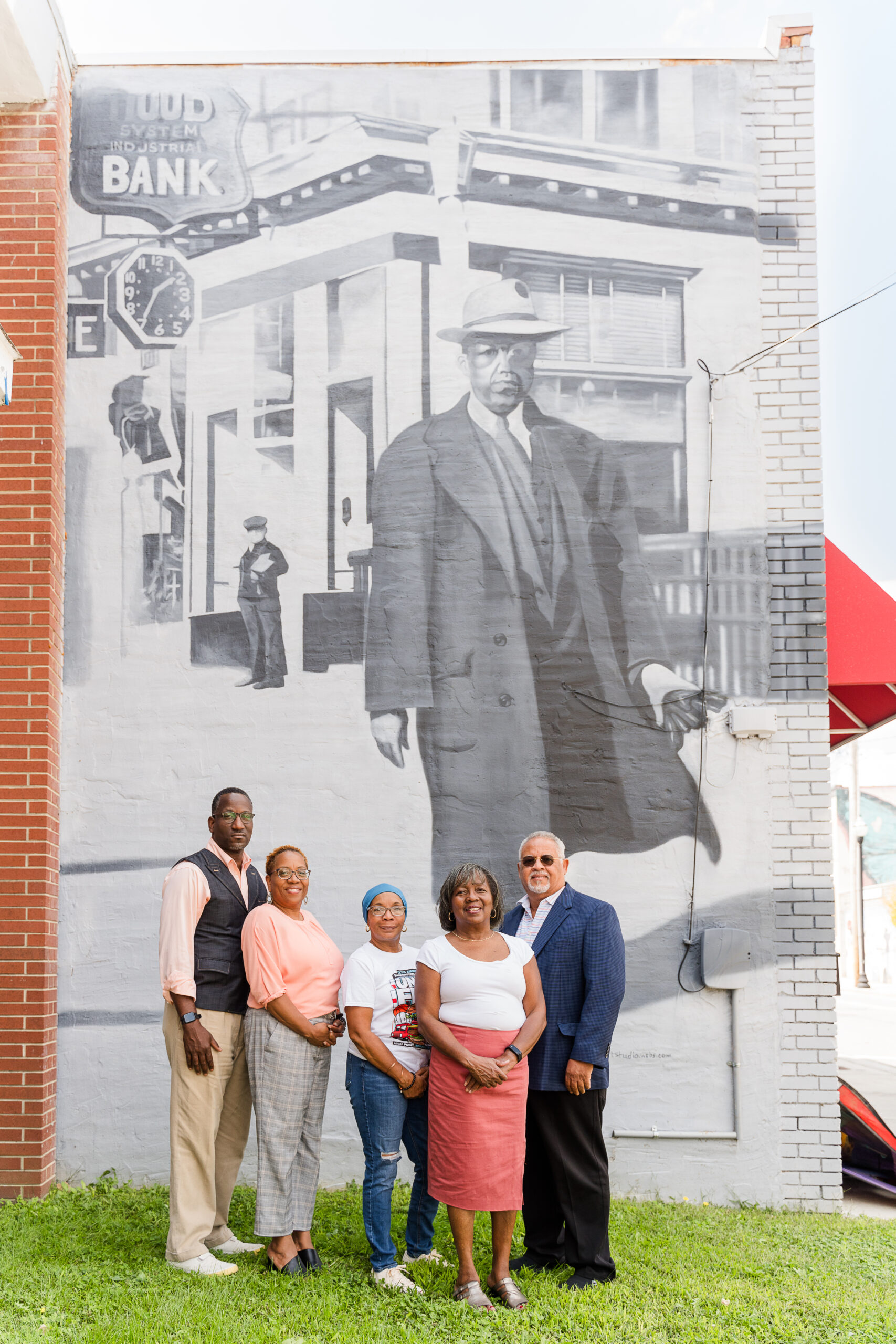
To commemorate these and other milestones, the African American Heritage Trail in High Point serves as a testament to this rich history and remarkable contributions of the Black community in our city. The trail currently includes 11 different sites (like the Blair-Coltrane House where John Coltrane grew up, the site of the former Kilby Hotel & Arcade, the Greenhill Cemetery, and more).
Phyllis Bridges, along with Raynetta Jackson, Barney Jackson, Gerard Moses, and Rishaunda Moses, have been instrumental in creating the African American Heritage Trail here in High Point, N.C. The group makes up the Washington Street Historic Preservation Society, a group dedicated to protecting, preserving, revitalizing and maintaining the architectural characteristics and historical significance of the homes, businesses and structures in the Washington Street district.
One way the society has made this goal tangible is through the creation of the African American Heritage Trail. Rich in historical facts, High Point’s African American Heritage Trail is designed for both residents and tourists seeking an introduction to the wealth of African American history and culture in our historic district and its surrounding area. The hope is that this trail eventually becomes part of the statewide initiative, the African American Experience, to link High Point’s historic sites to the larger Black history of our state.
Phyllis is a native of High Point, a local historian, and the visionary founder of Yalik’s Cultural Arts Center. Through her work with Yalik’s, Phyllis captures and shares photos, video documentaries, interviews, and more of the forefathers and foremothers of High Point’s history.
"I realized that a lot of people, especially my age, didn't know this history,” she reflects. “And if I want to tell it and educate people, the best way to do it is through different mediums. I needed to find ways to capture people's attention to tell these stories.”
She, like many historians, embarked on a captivating journey to unearth the historical tapestry of life in High Point during the turbulent years of the Depression. She specifically wanted to uncover the impact of the Black community’s contributions in High Point to the significance of our churches, the role of our schools, and the vibrant neighborhoods and businesses that thrived here. Her mission extended beyond sheer curiosity; it was driven by an acute sense of urgency to unite the community, especially the property owners along historic Washington Street. The goal was clear: to craft a strategic plan that would not only safeguard the structural heritage but also illuminate the rich history of African Americans in High Point.
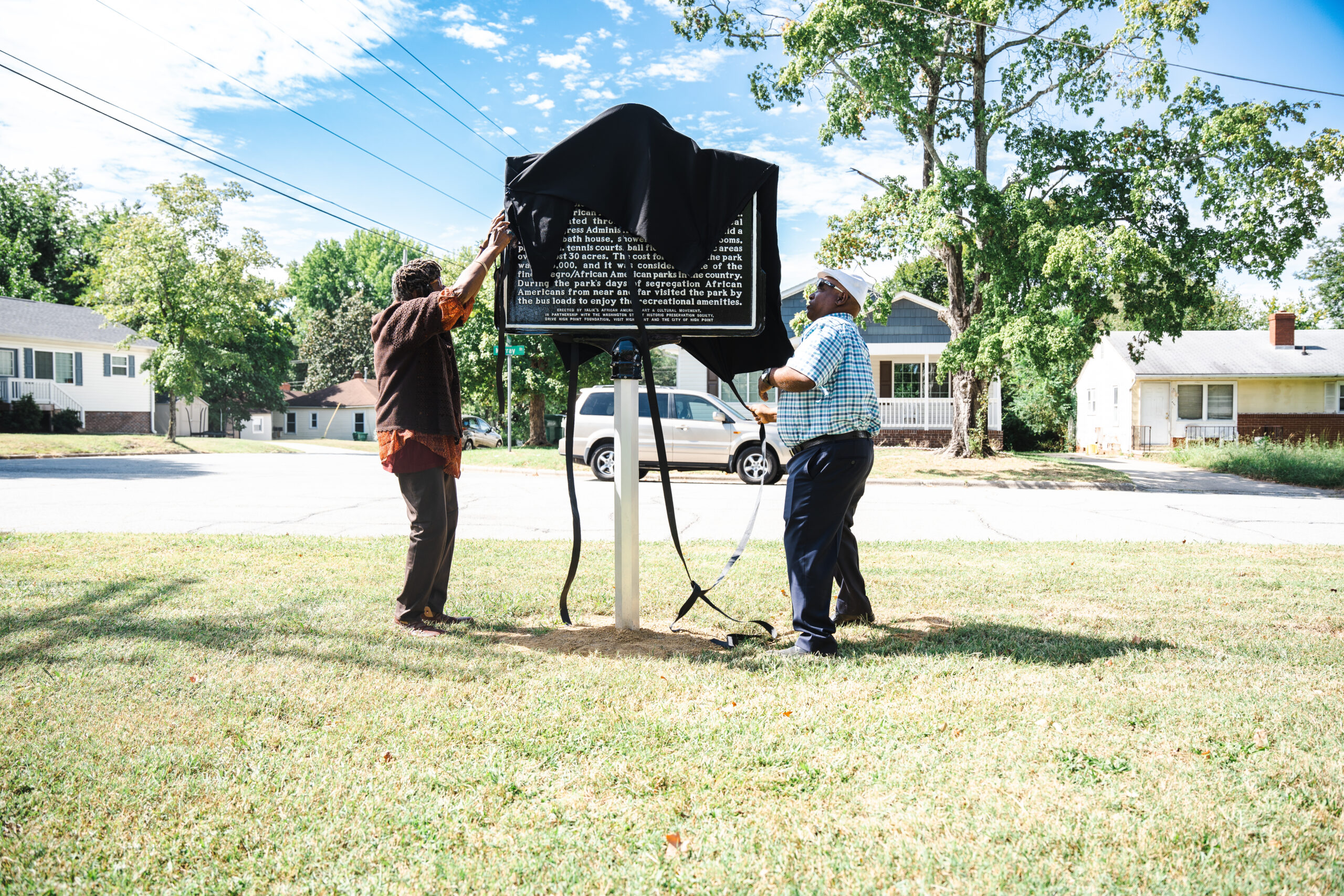
Phyllis stresses the significance of the community not losing their knowledge about history.
“Remembering how it was for us during that time,” she says, “you see history repeats itself. And if you study it, if you look at it closely... We are now up against a society where we are going backwards now."
She shares that, like many others, her formal education didn’t provide insights into the history of Black communities in the area. As she matured, her self-education on the subject deepened, stoking her desire to capture the historical monuments for the African American Heritage Trail.
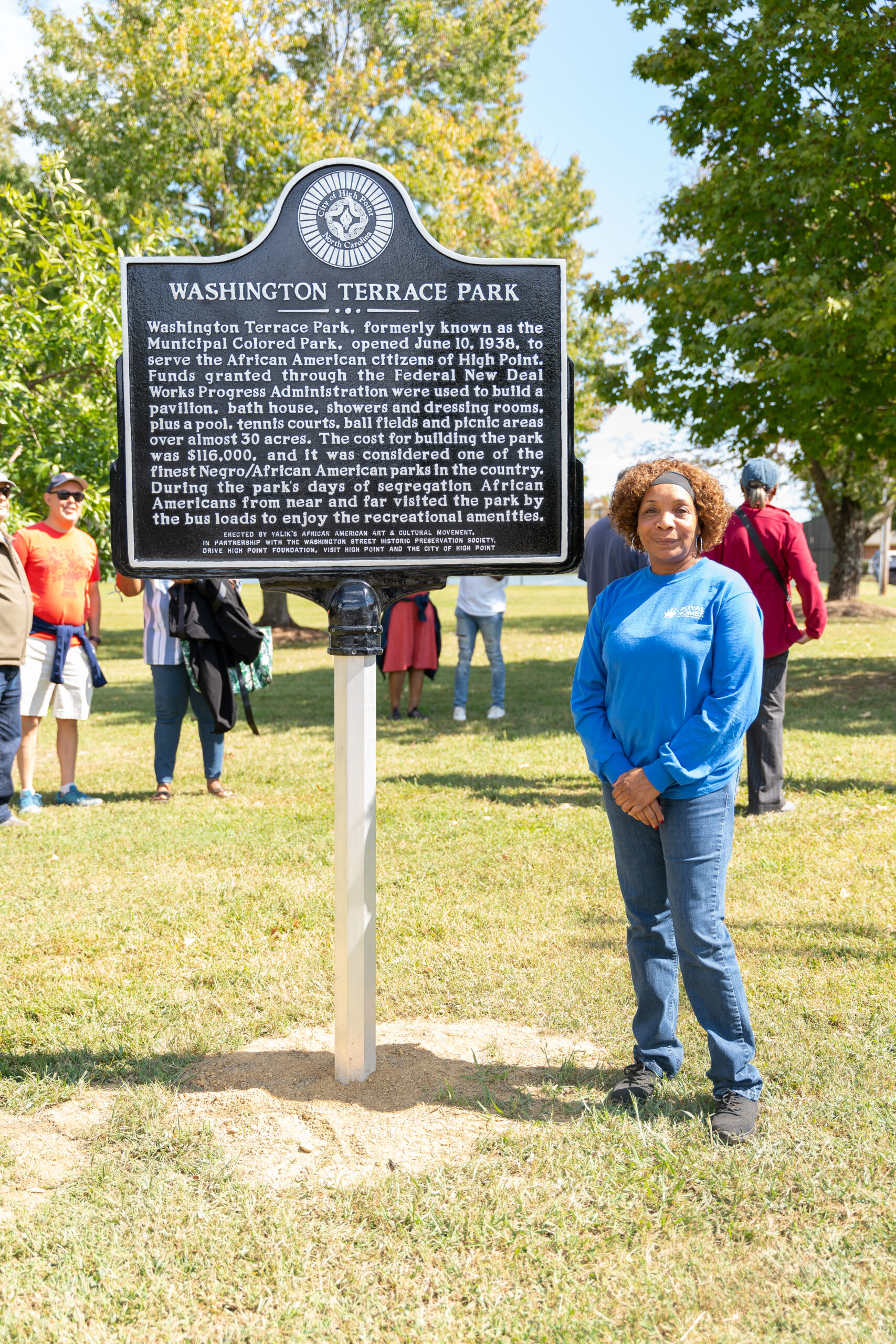
That’s why Phyllis has taken it upon herself to lead the charge in reshaping how High Pointers discover, explore, research, archive, exhibit, and share history. Phyllis's relentless passion is twofold: to create a legacy for the Black community and to educate the wider city about African American history. Her understanding of the importance extends beyond information and memory; it encompasses the preservation of eye-witness accounts and physical structures.
It is through the dedication of individuals like her, along with her fellow local historians, that we find a path to support and commemorate Black heritage in High Point. In 2019, before the onset of the COVID-19 pandemic, the locations for the African American Heritage Trail emerged when Phyllis recognized their potential. Securing a grant through Visit High Point’s foundation, DRIVE High Point, allowed the project to launch.
Raynetta and her daughter, Rishaunda, joined Phyllis in her passion to help uncover and explore Black history in the city of High Point. Raynetta was also born and raised in High Point. Her own family has left a long legacy of entrepreneurship and community work, like her grandmother’s business, Jackie’s Place.
"The spark [for the African American Heritage Trail] was that Raynetta and I are natives of High Point,” Phyllis explains. “We know a lot of the history. We are part of history. And Washington Street is still considered the heart of the Black community, so we saw the need and the urgency to bring folks together."
Phyllis voices her concerns, emphasizing the necessity of property owners having a dedicated voice for their properties. She highlights the absence of external representation for these property owners and the potential implications for the Washington Street area.
“We know a lot of the history. We are part of history. And Washington Street is still considered the heart of the Black community, so we saw the need and the urgency to bring folks together."
Phyllis Bridges, visionary founder of Yalik’s Cultural Arts Center and member of the Washington Street Historic Preservation Society.
“I'm the only one who isn't a property owner, but everyone who's part of this historical society is a property owner,” she notes. “They're that voice for their properties. We don't have people from the outside who are representing the property owners. And that's one of the things I feel like that Washington Street area is up against.”
“I think it puts a name on a face. It puts a building with a place if you will,” says Raynetta. “As a young child, I can still remember a number of buildings that were on Washington Street. A number of them are no longer here.”
But through the work of the Washington Street Historic Preservation Society, many of these spots can still be celebrated and honored thanks to the African American Heritage Trail.
History, as they say, tends to repeat itself, but the crucial question remains: what do we choose to do with this knowledge? Is it to instigate change, or discuss the need for progress?
The Washington Street Historic Preservation Society’s vision goes beyond mere discourse: it's about empowering the community and ensuring that the profound history of African Americans is both preserved and shared.
As we immerse ourselves in the rich tapestry of Black history, let us harness it as a tool for education, a means to enlighten others. The past can be a motivation for transformation, and it's within our grasp to ensure that this transformation is one of enlightenment and unity.
The African American Heritage Trail project is an opportunity for everyone to delve into High Point's rich history. For those eager to delve further into the work of these dedicated historians, you can explore their website and videos. Additionally, young individuals with a passion for history and a desire to make a difference can reach out for internship opportunities. Together, we can shape a future that honors the past, educates the present, and paves the way for a more inclusive and enlightened future.
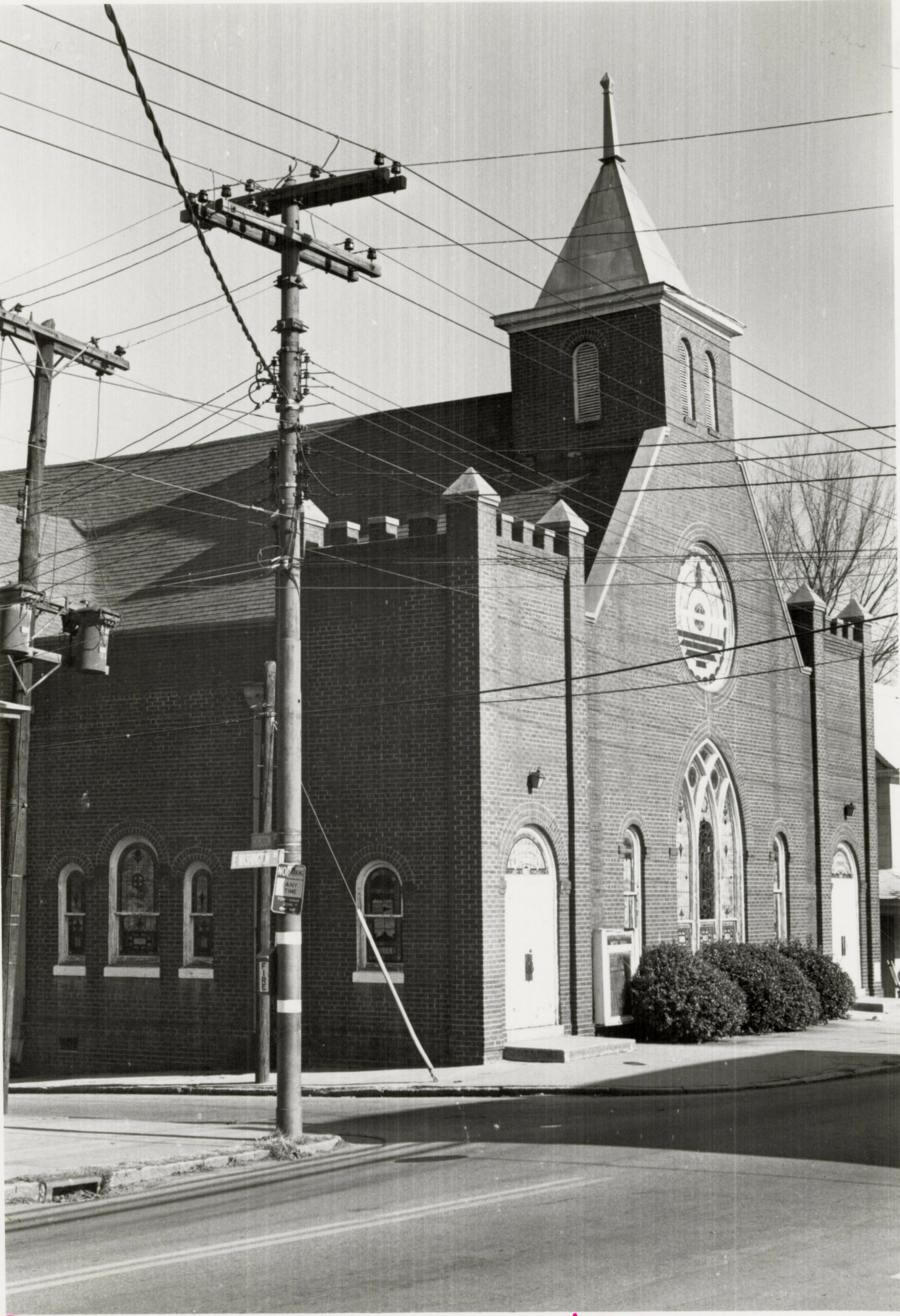
Discover our High Points,
The HPD Team
